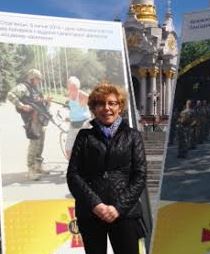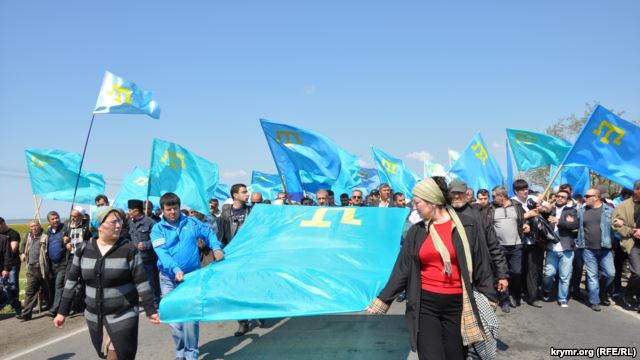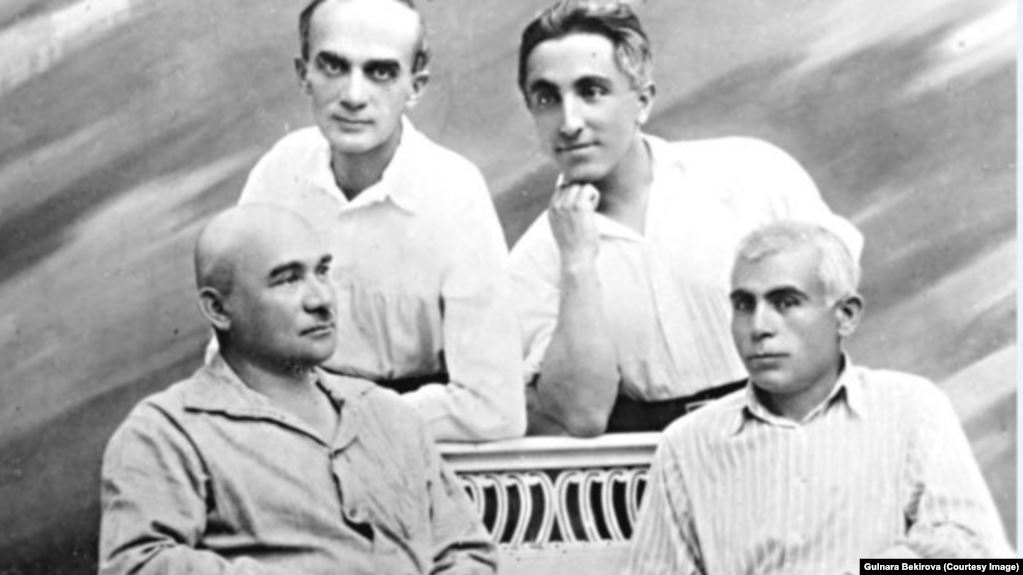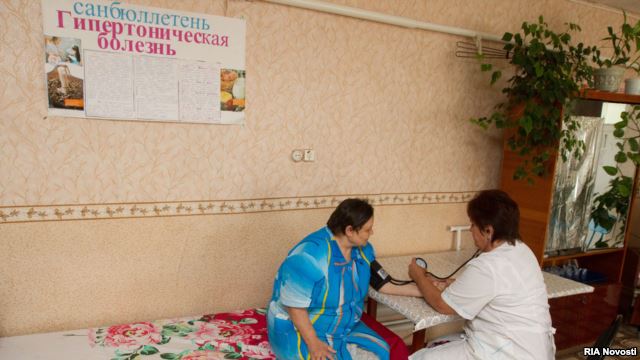While the unlawful Russian occupation of Crimea in 2014 is no longer fresh, it is increasingly urgent. There are new developments that shed light on the motives – and the potentially disastrous outcomes – of Russian-backed rule on the peninsula.
In February 2016, the Crimean prosecutor filed a lawsuit that would ban the activities of the Mejlis or self-governing organ of the Crimean Tatar people. The prosecutor’s attempt to outlaw the Mejlis is an attempt to destroy the entire system of self-government of the indigenous people once and for all. The suit is based on allegations of “extremism,” but the argumentation lacks any relevant evidence or support. As legal professionals located in Crimea point out, the arguments presented so far are nonsensical and actually contradict both Russian Federation and international law. It is germane here that the legal professionals and advocates sharing legal documents with me find it too risky to be cited or credited in this article.
All-inclusive category of "extremism" used to repress dissent
Whether or not it is based on sound legal argumentation, this development is the latest step in a long progression. Since the occupation in Spring 2014, authorities in Crimea have used the expansive and seemingly all-inclusive legal category of “extremism” to frighten the local population into submission and repress dissent. This has entailed closing mass media outlets; searching homes, schools and religious establishment for “extremist” materials; blocking informational sites on the internet; prosecution of people who make unfavourable statements on social networks; detention of journalists and people suspected of disloyalty; prosecution of ideological dissenters for "incitement to separatism;" bans on entry of activists and leaders like Mustafa Dzhemilev; and prosecution for belonging to certain Muslim currents. On top of these rights abuses, there has been an ongoing string of disappearances. The authorities claim to be investigating, but so far most of the cases remain unsolved.
Read more: Crushing dissent. Timeline of repressions against Crimean Tatars in occupied Crimea
Readers may recall that the territory was occupied in Spring 2014. After what has widely been described as a bogus referendum, the President Vladimir Putin declared the territory a part of Russian Federation. At an international level, giving Crimea up to Russia is construed as a violation of 1994 Budapest Agreement in which Russia and Western powers guaranteed Ukraine’s territorial integrity.
Mejlis to be outlawed because efforts to cajole or bribe it into submission failed
In 2014, Dunn and Bobick wrote that it is too early to speak about what kind of power Putin is constituting in Crimea, or its long term effects. Now it is clear that the label of “extremism” facilitates the creation of a state of exception in which politics of fear are used to control thought, speech, and behaviour. Crimean Tatar leaders speculate
that the court proceedings to outlaw the Mejlis are pursued because efforts to cajole or bribe the Mejlis into submission failed. The Crimean prosecutor’s approach to the Mejlis is an excellent example of what Jakob Rigi (2007) has called “the chaotic mode of domination,” a form of sovereignty that combines spectacular demonstrations of power with coercive force in troubling ways. This is a mode of rule in which statesman and criminal need hardly be distinguished.
The prosecutor’s reasoning is problematic. First, the prosecution rests on categorizing the Mejlis as a social organization when in fact it is the representative body of the Crimean Tatar people, protected by the norms of international law in the field of indigenous rights. Neither is it political party with like-minded members. In its present structure, it is a formed through democratically held elections by the National Congress of the Crimean Tatar people called the Kurultai, and the delegates actually profess different political views.
The documents cite Russian Federation law that it is unlawful to create social organizations whose activities are directed toward extremist activity. But what exactly is this extremism? It has to do with the Mejlis’ stated aim and purpose (also protected by international norms) which is the reinstatement of the Crimean Tatar people’s national and political rights, and the implementation of their right to self-determination in matters that concern them on their territory within Ukraine. Articles 3 and 4 of the UN Declaration on the Rights of Indigenous Peoples affirms the right of indigenous peoples to their own representative institutions, and calls on upon states to cooperate with them.
Digging deeper into the argumentation, the motives become clearer. The prosecutor alleges that the Mejlis “hinders the normal operation of the authorities” of the Autonomous Republic of Crimea because of their Ukrainian loyalty. Thus the Mejlis is an immanent target because of the Russia-Ukraine conflict as a whole.
What is at stake?
If the Mejlis is criminalized, 33 members of the Mejlis, plus some 2,300 members of the self-governing bodies at local levels will be at risk. Documents released by the Mejlis itself point out that imposition of a court ban on the activities of the Mejlis will not be only a direct violation of the norms and laws pertaining to indigenous peoples, a ban could also lead to the wider prosecution of the indigenous people of Crimea. If the ban is enacted, allegiance with the indigenous organs of self-government will be sufficient basis for charges of "extremism."
As Refat Chubarov, the Head of the Mejlis stated: “We do not know how the so-called Crimean authorities will use the unlawful decision to ban the Mejlis.” However, Russia has already accused
Mikhail Kasyanov. a well-known pro-Ukrainian, of being involved in an extremist organization by virtue of the fact that became a member of the Mejlis. Thus the action also opens a door for arbitrary repression and ethnic persecution of the Crimean Tatars. Benign statements or activities could be called complicity with an "extremist" ideology or organization. Given the troubling progression, residents of Crimea fear the next step. They fear it will be the legalization of racial and ethnic discrimination of the group as a whole, or the use of mass violence against them.
The activities of the de facto Crimean authorities have not gone without notice: the European Parliament has passed a resolution that condemns the proposed ban and activities of the occupational authorities described above. However, Ukrainian sources quoting (1, 2) the resolution distort its text, failing to actually mention the Crimean Tatars as an indigenous people of Crimea. It is difficult to know if this omission is politically motivated. The recent resolution of the European Parliament declaring Crimean Tatars to be an Indigenous People of Crimea may provide some traction for changing the situation. However, a long standing barrier to a more robust response is that in actual dealings, the European Union, United States, Council of Europe, and Ukrainian Government still have a habit of treating Crimean Tatars as an ethnic minority, and focusing on cultural and linguistic rights more than civil and political ones.
The international community must take note of this recent development because the ban can be construed as an affront to the entire people, and will confound any attempts to protect human and indigenous rights in Crimea in the future. In this context, extremism is a category devoid of content that we can best understand as a politically expedient tool for the further repression of the indigenous people, in contravention of international norms and conventions.
- [hr]Rigi, Jakob. 2007. The War in Chechnya: The Chaotic Mode of Domination, Violence and Bare Life in the Post-Soviet Context,” Critique of Anthropology 27(1): 37-62
- Dunn, Elizabeth and Michael S. Bobick. 2014. “The empire strikes back: War without war and occupation without occupation in the Russian sphere of influence” American Ethnologist 41(3):405-413.






